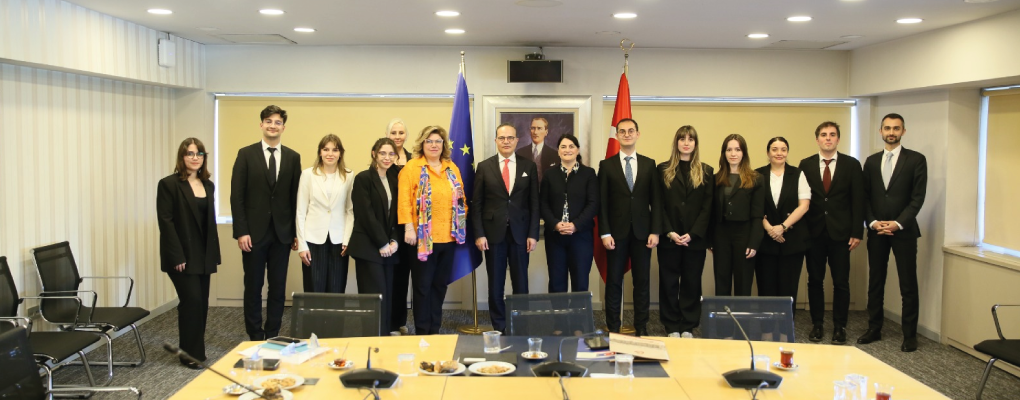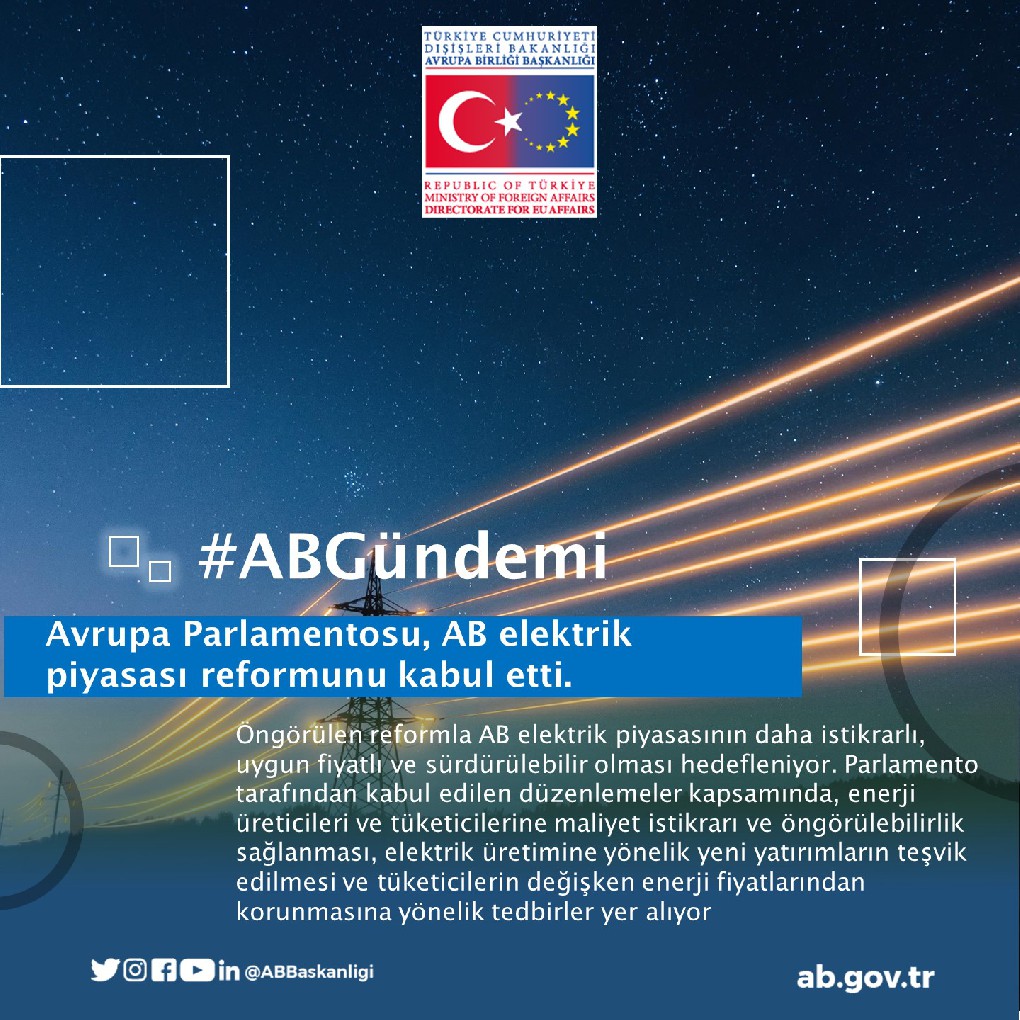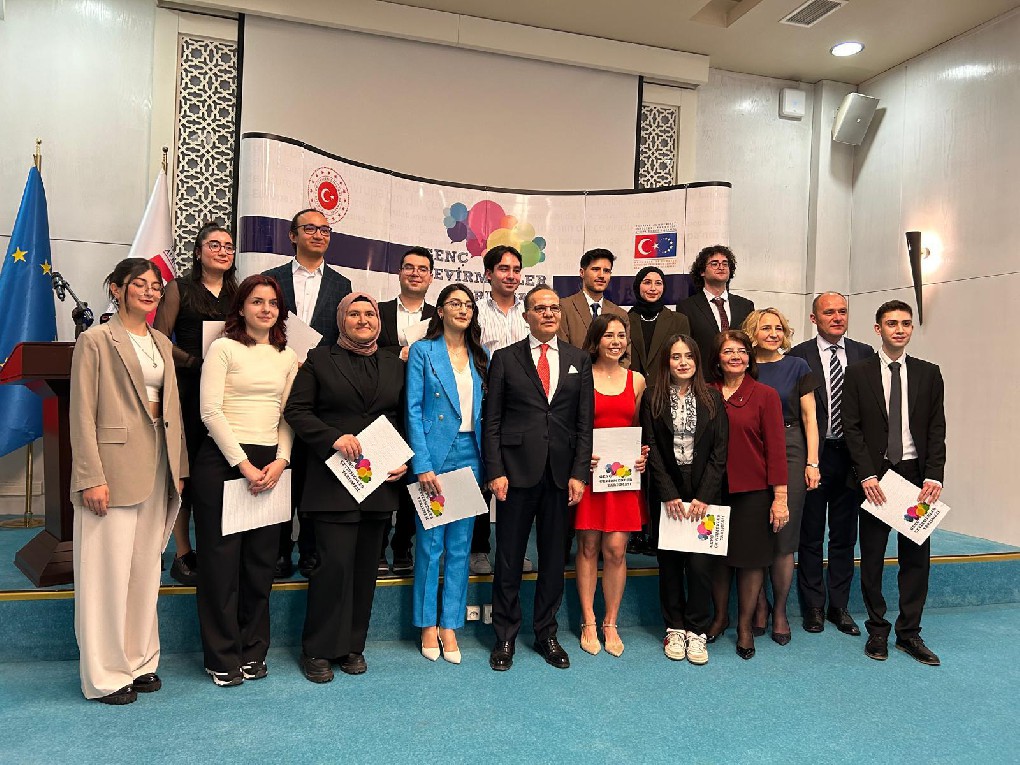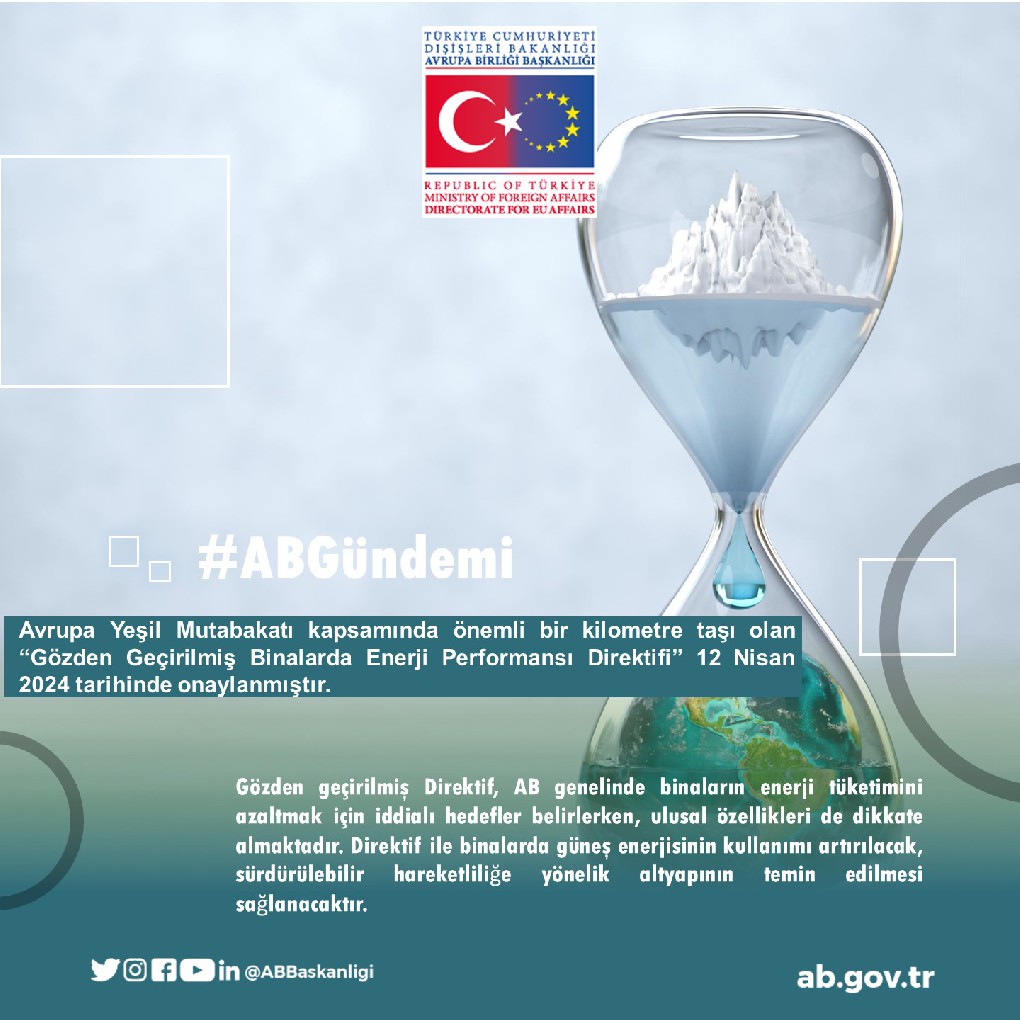- HOMEWelcome
- DIRECTORATE FOR EU AFFAIRSStructure
- E.U.Structure
- TÜRKİYE-EU RELATIONS
- History of Türkiye- EU Relations
- Main Documents
- Agreements
- Protocols
- Accession Partnership Documents
- National Programmes for the Adoption of the Acquis (NPAA)
- Türkiye Reports Prepared by the European Commission
- Enlargement Strategy Papers
- Türkiye’s National Action Plan for the EU Accession
- Türkiye’s National Action Plan for the EU Accession (2021-2023)
- Association Council Decisions
- Documents on Türkiye-EU Summits
- Institutional Structure
- Customs Union
- Türkiye- EU High Level Dialogue Meetings
- DATASources
- MEDIANews
- CONTACTContact Us
Deputy Minister of Foreign Affairs and Director for EU Affairs Ambassador Faruk Kaymakcı’s article entitled “The Covid-19 Challenge and the EU”
Deputy Minister of Foreign Affairs and Director for EU Affairs Ambassador Faruk Kaymakcı’s article entitled “The Covid-19 Challenge and the EU” was published on the International Relations Council Panorama Portal and Hürriyet Daily News.
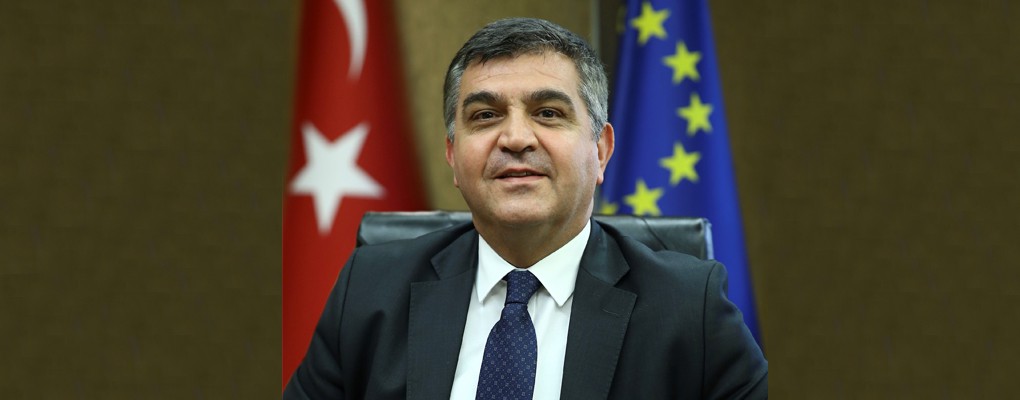
The Covid-19 Challenge and the EU
The COVID-19 pandemic, arising in a period when the European Union (EU) struggles with many difficulties, such as the Euro crisis, the refugee pressure, Brexit and the rise of populism, is a significant challenge that can affect the EU to a considerable extent.
The fact that the extent and severity of the pandemic had not been realized for a while, the pandemic coincided with the period of shaping the EU institutions for 2019-2024, health policies fell within the Member States’ exclusive competence and institutionally the EU do not have the necessary powers and sources to manage crises, as well as the divisions within the Union has led the questioning of the EU.
Time will show us whether this crisis will lead to deepening of geographical, economic and political divisions among the EU Member States, namely north-south and east-west, and strengthening the role of nation states while weakening the supranational tendencies within the Union.
As of the second half of March, the EU, as an institutional structure, has gained control of the crisis management and established the solidarity and cooperation to a great extent. Within this context, the EU has set up a joint procurement mechanism in order to supply the urgent needs of the Member States in terms of health products; enabled the Member States to rapidly use various EU funds; provided safeguards concerning free movement of goods through implementation of green lanes within the Schengen area and contiguous regions; increased the investments on vaccine and treatment research and made common efforts for the return of the EU citizens home.
The COVID-19 pandemic has revealed the ever-increasing interdependency of the globalized world as well as the incapacity of the nation states to fight the pandemic on their own and hence the significance of the EU. It is clear that cooperation is the only way to deal with the critical issues such as bearing the economic and social costs of the pandemic, salving the social wounds, protecting the environment and, in particular, implementing the health, medical treatment and research policies both during the pandemic and afterwards.
Therefore, I believe that the EU will consolidate itself and increase its supranational role in numerous policy fields, especially in economy, trade, social policy and health.
The EU, which has a long history of crises, is indeed the sum of solutions to these crises. Thus the EU will continue strengthening its common policies, bearing in mind that a global crisis cannot be solved by the Member States individually.
While the response of the EU as an organization to this pandemic has not been impressive, it is a fact that the EU Member States would have faced a more dramatic situation and suffered greater damage without the existence of the EU.
In other words, the existence of the EU has mitigated the shock of COVID-19 crisis, facilitated and accelerated the efforts to alleviate its severe effects and helped to lower the costs.
Source:
https://www.hurriyetdailynews.com

